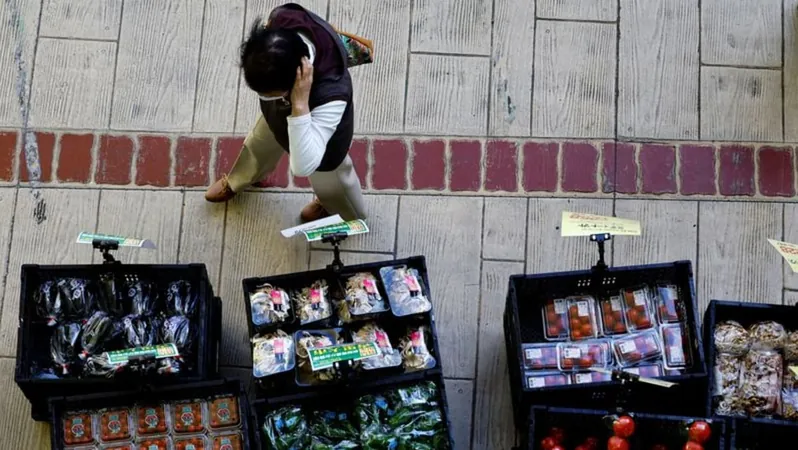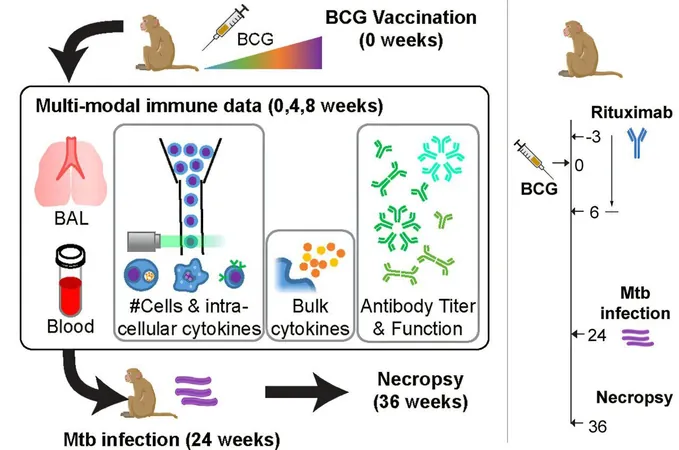
Japan's Wholesale Inflation Surge Intensifies Speculation on BOJ Interest Rate Hikes
2024-11-13
Author: Siti
Introduction
In October, Japan experienced a notable acceleration in wholesale inflation, reaching its highest annual increase in over a year, as the ongoing decline of the yen resulted in elevated import costs. This complicates the Bank of Japan's (BOJ) strategy regarding potential interest rate adjustments.
Wholesale Inflation Data
Data from the Bank of Japan revealed that the corporate goods price index (CGPI), which reflects the prices at which companies transact with each other for goods and services, saw a year-on-year increase of 3.4% in October. This figure not only exceeded market expectations of a 3.0% rise but also followed a previous 3.1% increase in September, marking the fastest growth since August 2023.
Key Contributors to Inflation
Key contributors to this inflation spike include a surge in rice prices and the rising costs of nonferrous metals, food products, and oil. These factors indicate that businesses are still grappling with increased raw material pricing pressures.
Manoeuvring Import Costs
Interestingly, the yen-based import price index recorded a 2.2% decline compared to the previous year, although this was a slight improvement from the more pronounced drop of 2.5% experienced in September. Month-on-month, the index rose by 3.0%, reversing a previous decrease of 2.8% in September. This trend suggests that the dollar's significant appreciation by 4.3% against the yen during the period kept import costs elevated for a variety of enterprises.
Expert Analysis
Takeshi Minami, chief economist at Norinchukin Research Institute, commented on the enduring inflationary pressures affecting wholesale goods prices. "While consumption lacks momentum, wage hikes are proceeding, so the chance of a December interest rate hike appears to be heightening," he remarked.
Recent BOJ Policy Changes
In response to economic conditions, the BOJ concluded its negative interest rate policy in March and raised short-term interest rates to 0.25% in July, citing progress toward its 2% inflation target. BOJ Governor Kazuo Ueda has indicated that the bank is prepared to increase rates further if inflation is driven more by robust domestic demand and climbing wages, rather than rising raw material costs.
Factors Influencing Future Rate Hikes
Moreover, Ueda pointed to rising inflationary risks stemming from a weakened yen as a pivotal factor in the BOJ's decision to elevate interest rates to 0.25% in July.
Economic Forecasts
A recent Reuters poll conducted from October 3 to 11 revealed a slim majority of economists predicting that the BOJ might abstain from further rate increases for the remainder of the year. However, nearly 90% of those surveyed still forecast an upward adjustment in rates by the end of March 2024.
Conclusion
As Japan navigates these economic shifts, all eyes remain on the BOJ's next moves, with potential implications for both domestic consumers and global markets. Stay tuned as we continue to track this evolving story!





 Brasil (PT)
Brasil (PT)
 Canada (EN)
Canada (EN)
 Chile (ES)
Chile (ES)
 España (ES)
España (ES)
 France (FR)
France (FR)
 Hong Kong (EN)
Hong Kong (EN)
 Italia (IT)
Italia (IT)
 日本 (JA)
日本 (JA)
 Magyarország (HU)
Magyarország (HU)
 Norge (NO)
Norge (NO)
 Polska (PL)
Polska (PL)
 Schweiz (DE)
Schweiz (DE)
 Singapore (EN)
Singapore (EN)
 Sverige (SV)
Sverige (SV)
 Suomi (FI)
Suomi (FI)
 Türkiye (TR)
Türkiye (TR)